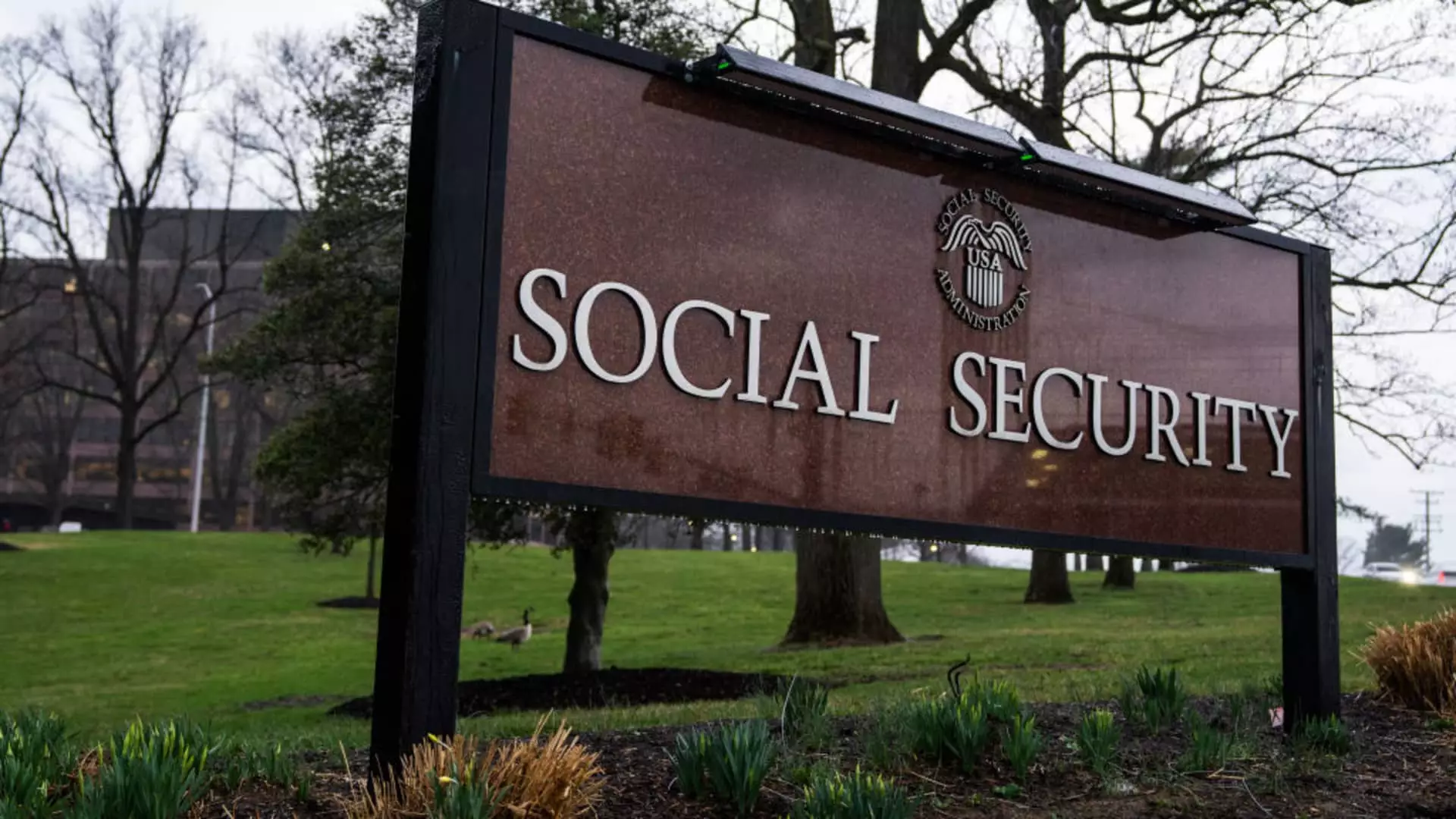In a landmark ruling, a federal judge has intervened to halt the Trump administration’s unconventional initiative—specifically the Department of Government Efficiency (DOGE)—from siphoning personal data from the Social Security Administration (SSA). This decision, while primarily a legal maneuver, reflects deeper concerns about governmental overreach and the surreptitious use of sensitive citizen data by non-traditional government entities. The acting commissioner of the SSA, Lee Dudek, expressed apprehensions that the court’s ruling might disrupt essential services for millions of beneficiaries who rely on benefits from both Social Security and Supplemental Security Income.
It is alarming to consider that the current administration’s approach—a concoction of tech-charged schemes led by figures like Elon Musk—would result in a mere corporate entity, DOGE, having access to intimate personal information of American citizens. This situation serves as a stark reminder of the fickle nature of power dynamics in modern governance. Should we allow corporate tyrants to interfere with vital social services?
The Implications of DOGE’s Influence
The implications of this ruling go beyond mere bureaucratic inconvenience. Judge Ellen Lipton Hollander’s order—an urgent directive to protect individuals from having their personally identifiable information compromised—was not just a procedural necessity; it serves to highlight the potential chaos that the intertwining of governmental functions with corporate interests could wreak on American society. When Musk’s informal team, composed of individuals who operate outside traditional government oversight, threatens the integrity of social programs, it raises profound ethical questions about the extent to which corporate leaders can dictate public policy.
Musk’s dual status as a “special government employee” blurs the lines between business and politics, raising concerns over conflicts of interest. Individuals like him should not hold sway over pivotal institutions designed to support the most vulnerable in our society, and yet here we find ourselves facing the unsettling reality that some of the key decisions affecting our social safety net depend on people for whom the profit margins dictate their priorities.
Administrative Dysfunction Under Dudek
The situation is compounded by the leadership of Dudek, whose fragile grasp on the SSA has drawn sharp criticism from advocacy groups and union leaders alike. Lee Saunders, president of the American Federation of State, County, and Municipal Employees (AFSCME), has underscored that Dudek’s management has flirted with disaster, disrupting nearly a century of steadfast service to citizens. The notion that Dudek, having openly admitted to administrative missteps, remains in any leadership capacity is bewildering.
For an agency tasked with the critical function of advocating for and protecting the financial security of retirees and the disabled, the notion that its helm could be manned by someone described as inept is cause for alarm. It is astonishing to witness how the intra-departmental clash over data access could unravel the very fabric of Social Security, jeopardizing timely distribution of benefits for millions who depend on it.
Fanning Political Flames
The legal tussle has ignited a war of words in Congress, further complicating an already tumultuous political landscape. On one side, Democrats are sounding the alarm bells, branding the entire scenario a “five-alarm fire.” House Ways and Means Committee ranking member Richard Neal cites that these changes may act as backdoor cuts to benefits critical for seniors and those with disabilities. Conversely, Republican leaders dismiss the concerns, accusing Democrats of exploiting the situation for political gain.
Insofar as a bipartisan solution remains elusive, one cannot help but feel anxious about the implications of such political maneuvers on individuals reliant on these benefits. The problem is not merely a technocratic one; it is about lives, livelihoods, and the intrinsic value of human dignity. When political parties prioritize electoral advantage over human welfare, they risk elongating the suffering of those who are already vulnerable.
The Future of Social Security: A Precarious Balance
With President Trump nominating Frank Bisignano, CEO of Fiserv, as the next commissioner, the looming question remains: what future awaits the Social Security Administration when the appointment appears to be yet another instance of corporatocracy infiltrating government? If the path set before us entails wiping away the foundational principles that have governed Social Security for nearly a century in favor of efficiency driven by the interests of private industry, we must vehemently oppose this trajectory.
As this administration continues its reckless application of power, we stand on a precarious precipice. The intertwined fates of DOGE’s ambitions and Social Security’s future hang in a delicate balance, where the values of transparency, accountability, and efficiency must not only coexist but thrive to protect our social contract with the governed. Otherwise, we may very well witness a regrettable chapter in American social welfare history.

